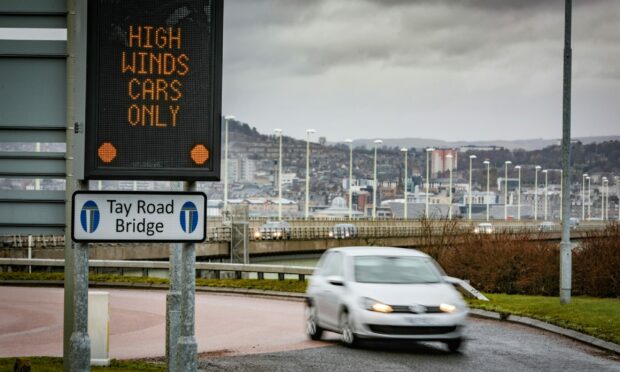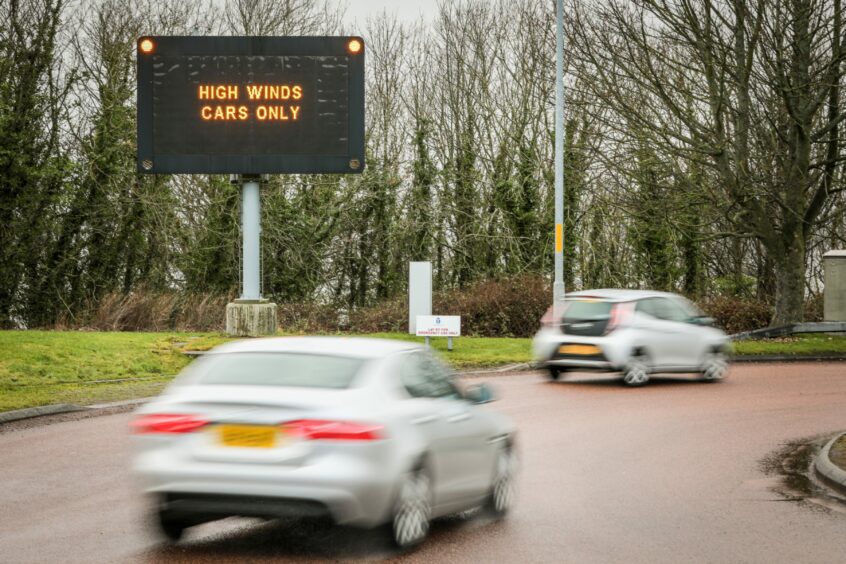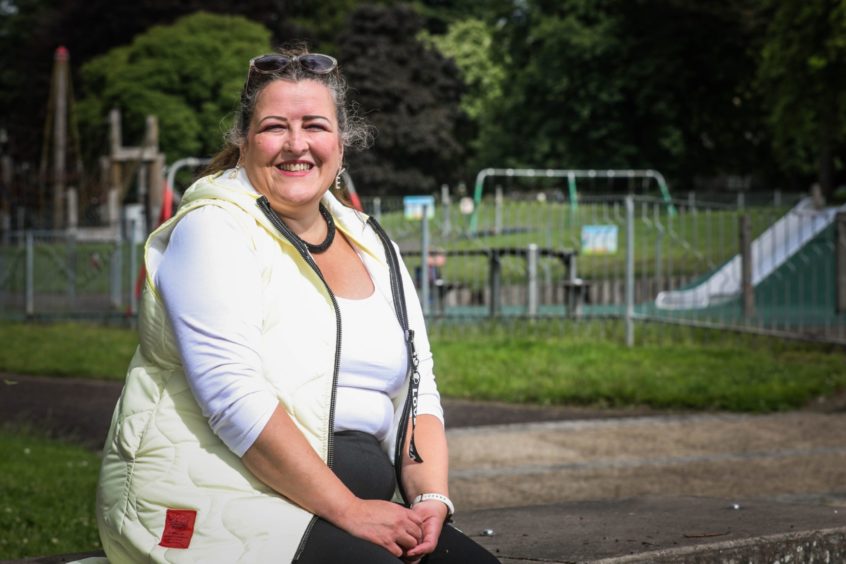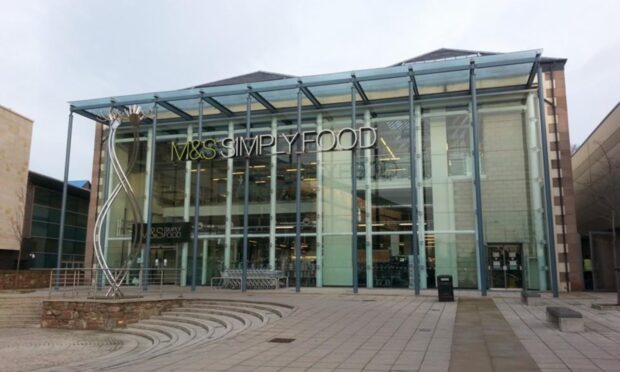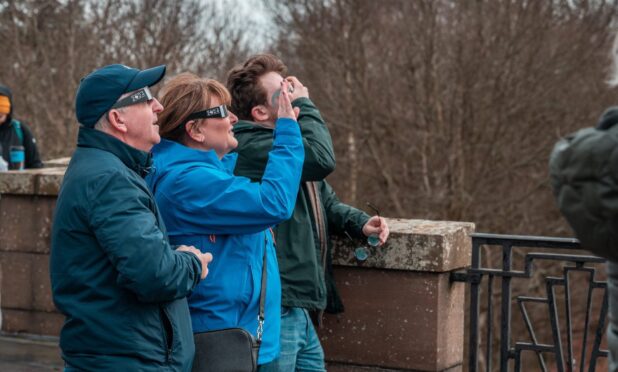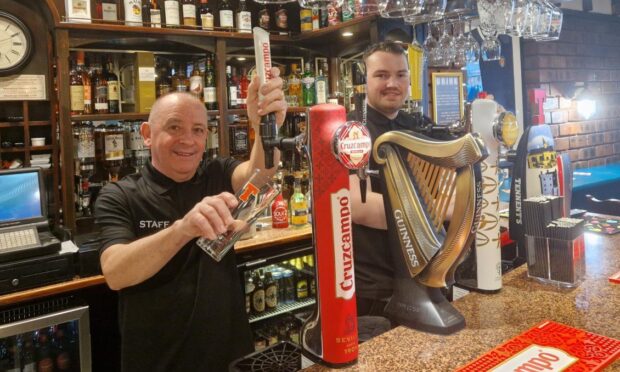Drivers who ignore weather restrictions on the Tay Road Bridge could face fines under new bylaws being drawn up, The Courier can reveal.
The legislation is being considered by bridge chiefs to make rules imposed during high winds legally enforceable.
Under the current laws – which were introduced in 2000 – the bridge manager is allowed to put restrictions in place under severe weather conditions.
These include closing the bridge to certain types of vehicle, such as HGVs and double-decker buses.
However, the restrictions are currently just advice – and those who ignore them cannot be prosecuted.
The bridge board is looking to change this, and has drafted a new set of bylaws which would make it possible for drivers who ignore the restrictions to be fined up to £500.
On Wednesday, an HGV driver caused delays on the bridge after driving on to the crossing while restrictions were in place.
Why are new bylaws needed?
Councillor Lynne Short, chair of the bridge board, has explained the thinking behind the move.
She said: “At the moment there isn’t a consequence for people who chose to ignore these restrictions.
“What happened on Wednesday shows us that these kinds of issues can happen.
“With these weather events becoming more frequent, we need to take a look at ways we can deal with this.
“Obviously, the thing that nobody wants is for one of these lorries to go over and for everyone to say we didn’t do anything to stop it.
“I understand that we can’t legislate everything, but maybe we do need to have a look at it.
Police could enforce rules
“Ultimately it would be up to the police to enforce things, but this would give them those powers.”
Fife councillor Jonny Tepp, vice-chair of the board, said: “There is nothing in place to stop HGVs from ignoring the restrictions just now.
“There should be stronger bylaws.
“You wouldn’t put restrictions in place if you didn’t think it could be unsafe.”
A copy of the proposed bylaws has been submitted to Transport Scotland for legal review.
The new legislation will later be put up for public consultation.
